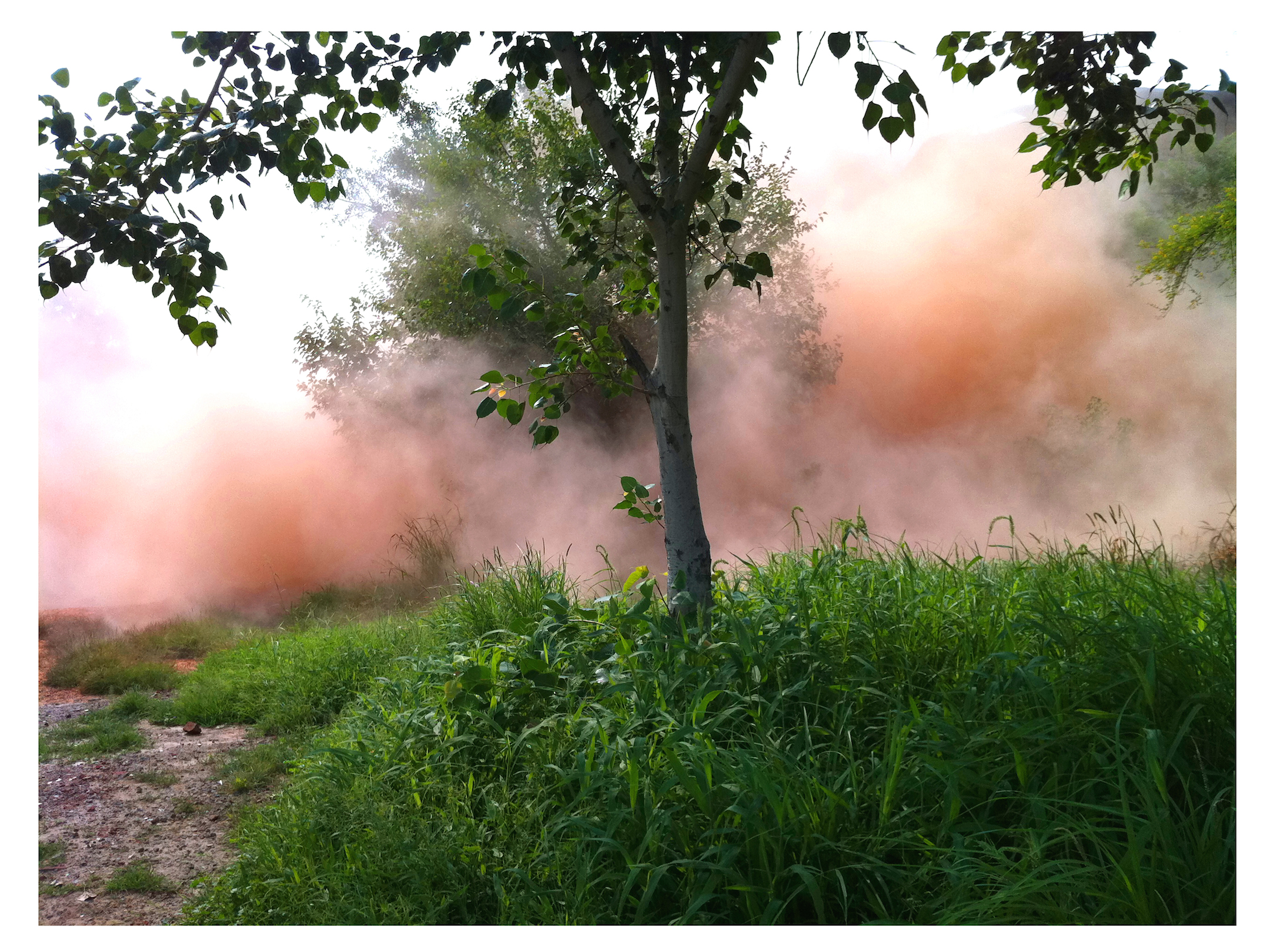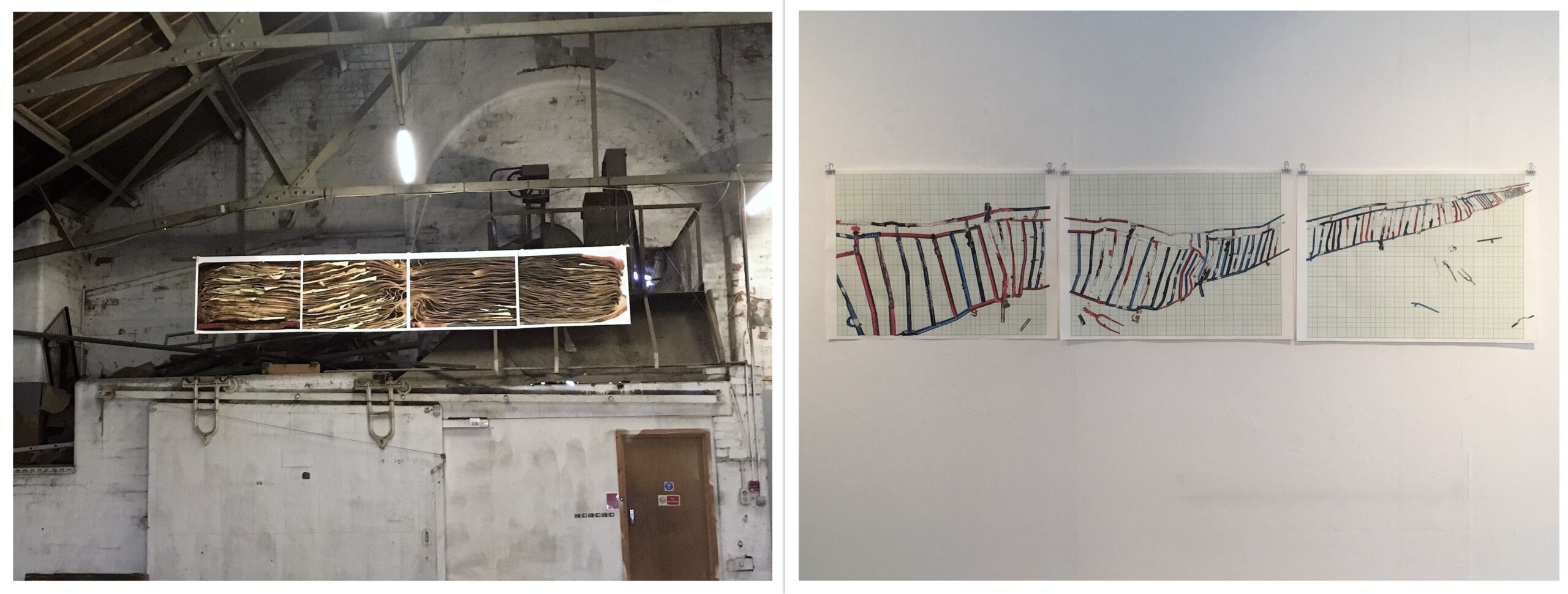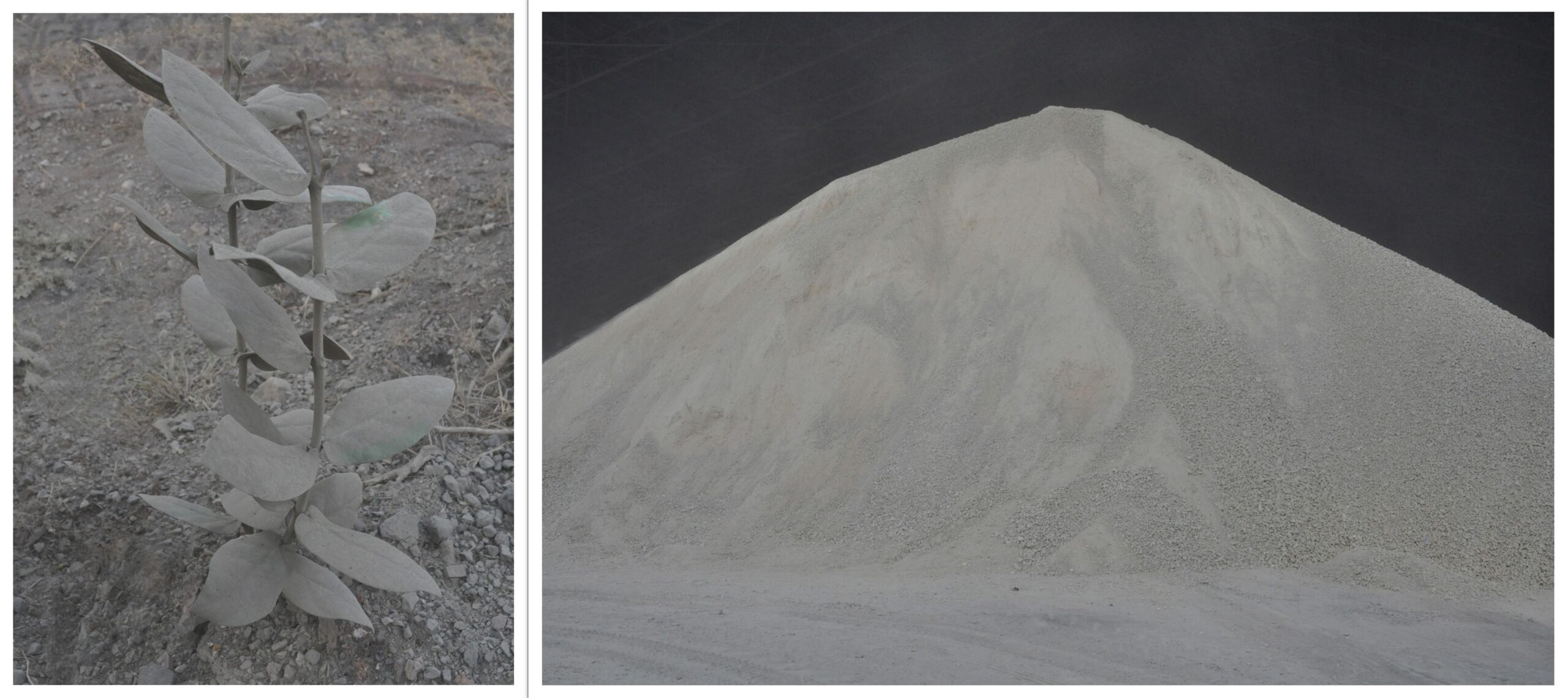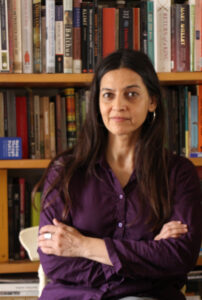Landscape as Language : In conversation with Huma Mulji

Huma Mulji, The City of a Thousand Rebellions, Sarwar Road, 26th July 2011, Textiles Dyes on Canvas, 152.4 cm x 121.9, 2018.
The image was taken on 26July 2011, as a functioning water tower in the Lahore Cantonment was demolished to clear space for land to be gifted to army generals. The image reflects the vulnerability of the city’s inhabitants, resilience and resistance in the face of power structures, belief systems and exclusions. Brick dust in Lahore signifies many rebellions, past and present, alongside the hope and horror of human ambition, inaugurating and obliterating at once.
Huma Mulji’s work is layered through the registers of collective memory and perception – her own and her family’s past melded with landscapes and spaces. She uses the mediums of photography, collage, sculpture and freehand drawing to cumulatively approach the distinct yet enmeshed facets of time, place, language and narrative. By the time Mulji had migrated from Lahore (Pakistan) to Bristol (UK) in 2016, she had been a practising artist for two decades, having exhibited internationally at various institutions and forums, including the Gwangju Biennale (2014) and the Venice Biennale (2015).
Similar to the way these displays took on a meaning of their own while being installed in different locations, the artist too felt an inner shift and reassessment of her sense of belonging that accompanied her move to the United Kingdom. This was spurred by the artist having to redefine the arc of her career, but also come to terms with language barriers, the discourse on art that were different from the ones she was accustomed to.
In this conversation that concludes a series of six posts broadly mapping the course of a selection of artists’ perspectives, the overall impulse was to extend and evolve an understanding of South-Asian diaspora in the U.K. Mulji unpacks the nuances of her work in relation to her experiences of displacement and what it means to lose a language of belonging, while trying to absorb a new one. Drawing upon her parents’ post-Partition trauma, the artist speaks about the desire for change and the unexpected displacement of transitioning into a new framework. In an exchange of notes with Mulji while working on this piece, she wrote – “I love to sing aloud in Urdu when I’m biking or walking by myself to take over a public space with a language I have nowhere else to place!”

(left) Huma Mulji, An Unquiet Grave (Installation view), 2020; Photo Credit: Ben Jones.
(right) Huma Mulji, Bicycle Collage triptych, 2019.
In re-visiting the diverse narratives of place through Mulji’s explorations, there are elements of humaneness such as the dynamics of inter-relationship and strong rootedness to family that seep in. Ironically, and perhaps through some resistance, they have made possible floating experiences and attachments about what home can mean in relation to feelings of loss. In this conversation, as Mulji oscillates between the UK and Pakistan, she leaves behind residues in the form of conversations that suggest how rethinking the diaspora may evolve into a consideration of a new globalism, and a multicultural citizen.

(left) Huma Mulji, Conversations with Karamatullah, 2016.
(right) Huma Mulji, Fraud, 2016.

(left) Huma Mulji, Anatomy of A Landscape | Sabza, 2018
(right) Huma Mulji, Anatomy of A Landscape | Chaand, 2018
All images courtesy of Huma Mulji.

Huma Mulji works with sculptural installation, photography, collage and drawing. Collective memory and the ‘overlooked’, serve as subjects in her works. Looking at the dysfunctional, the sorrowful, the futile and the funny, her sculptures and photographs stand as inconvenient witnesses to time and place, critically exploring material, form and a fragmented historical narrative.
Mulji’s participation in recent exhibitions includes Can you Hear my Voice? Melbourne, Australia, (2021) Skyfall, (solo) Karachi, Pakistan (2020). The Centre of Gravity, Bristol, UK, (2020). She was a recipient of the Abraaj Group Art Prize 2013, and the Nigaah Award for photography in 2017. Mulji is represented by Project 88, Mumbai. She currently lives in Bristol, UK and is Senior Lecturer, Fine Art, at University of the West of England, Bristol.
Comments